32 reasons to adopt a dog
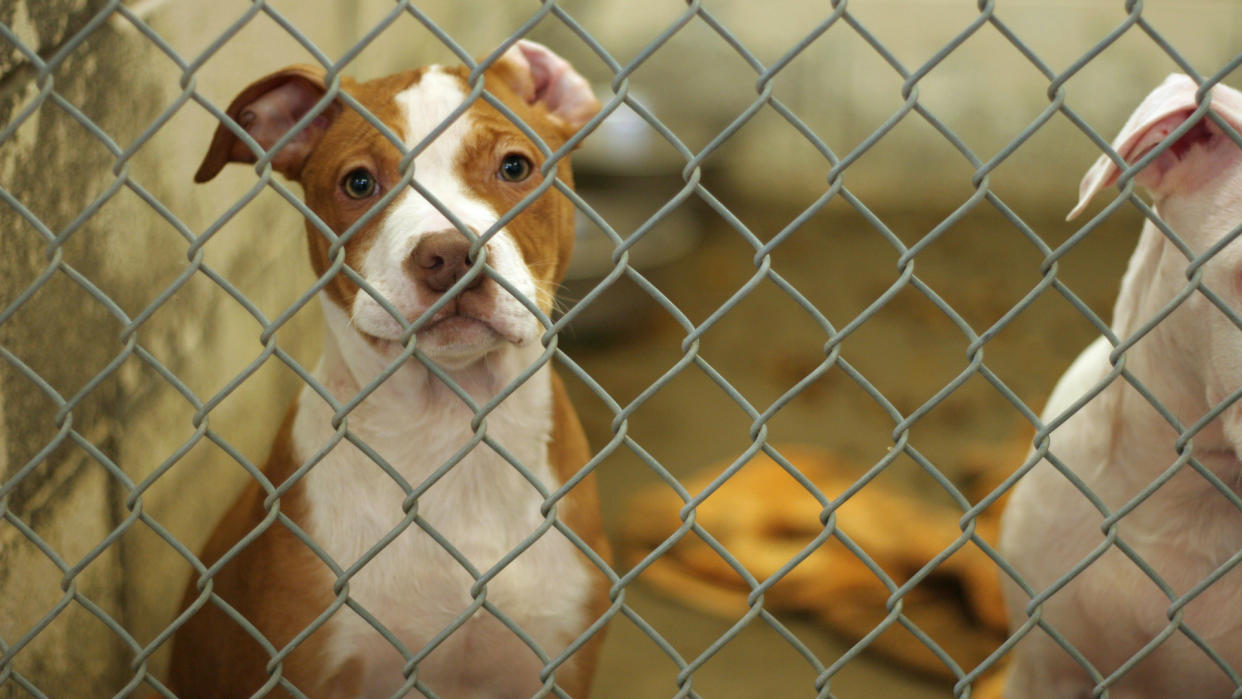
We may be used to images of abandoned pups looking miserable, but shelters are a beacon of hope, doing an amazing job of rehabilitating dogs and finding perfect matches for their new forever homes. You’ll find a variety of personalities, from goofy puppies to wise old souls, in a cocktail of weird and wonderful breeds, all looking for their forever home.
It’s a win-win situation when you adopt – you get a loyal companion, and you’re breaking the chains of canine homelessness. And it’s not all about the good you’re doing for the sake of animal welfare; the rewards are manifold. You’ll boost your family with a devoted pet who’ll fill your days with love, laughter, and exasperation in equal measure. So, skip litters of perfect pedigree pups and consider the shelter. There are so many reasons for choosing to adopt a dog. All you need is patience, love, one of the best dog leashes, and the best puppy treats – though experience and an open mind also help.
Adopting from a shelter gives an unwanted, abandoned dog another chance in life. More than three million dogs are taken into shelters in the US every year, but only around two million are rehomed, according to the American Society for the Prevention of Cruelty to Animals. These dogs often have incredible stories of resilience, coming from all backgrounds. Not only are you providing a loving home to a needy pup, but you’re also embracing their unique journey and becoming part of their amazing tale of triumph.
32 reasons to adopt a dog
1. Save a life
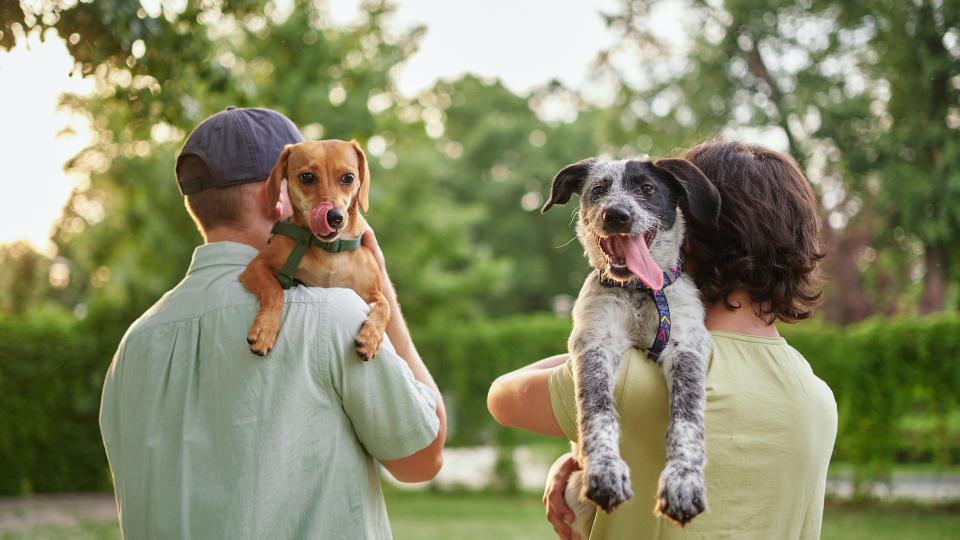
By adopting a rescue dog, you are giving a second chance to a dog in need and potentially saving their life. Some dogs who have been rejected by their previous owners are put to sleep, around 390,000 in the US, according to the ASPCA (American Society for the Prevention of Cruelty to Animals). However, this number has diminished significantly in the past decade.
2. Reduce overpopulation
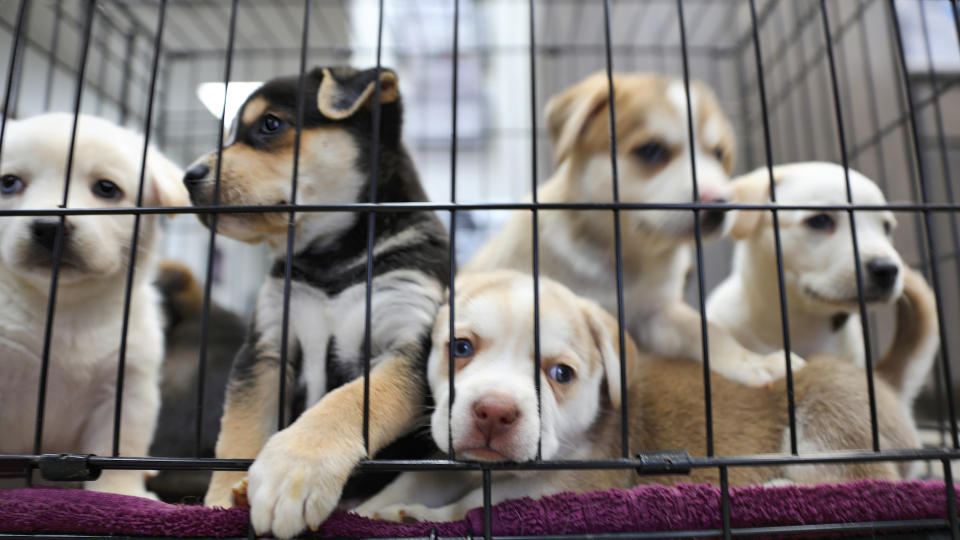
Adopting from a shelter or rescue helps address the issue of pet overpopulation by providing homes for dogs who are already in need. According to the ASPCA, 3.1 million dogs enter US animal shelters every year.
3. Diverse options
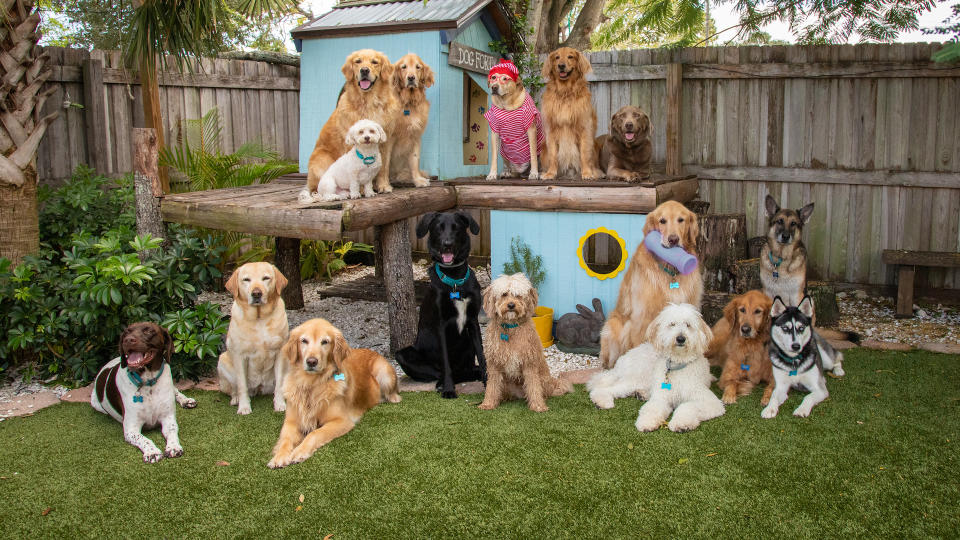
Buying a puppy from a breeder, you’re not likely to get much choice. One breed, one litter – giving an assortment of very similar dogs of identical age and likely similar personalities given their genes. The world’s your oyster in a rescue center, where there will be myriad breeds and dogs of all shapes, sizes, temperaments, and ages – from puppies to veterans. You're guaranteed to find some of the super cool dog breeds in the United States at a shelter.
4. Temperament known
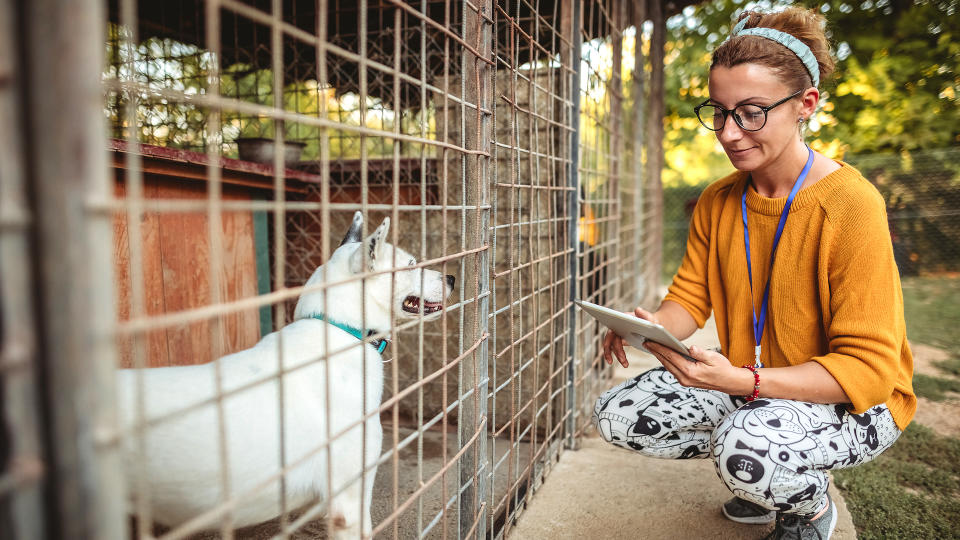
When dogs are given up for adoption, the previous owners need to supply all the characteristics, behavioral issues, pros and cons of the unwanted dog. They typically tell the full story, because they need to justify their reasons for not being able to continue keeping the dog. Abandoned dogs will be fully assessed and monitored by the experienced workers at the shelter, who will be able to tell you all they know without prejudice.
Not all rescue dogs have behavioral problems – some go into adoption centers because of the owner’s ill health or financial situation.
This transparency works to your advantage because you know what you are taking on.
5. Support and advice
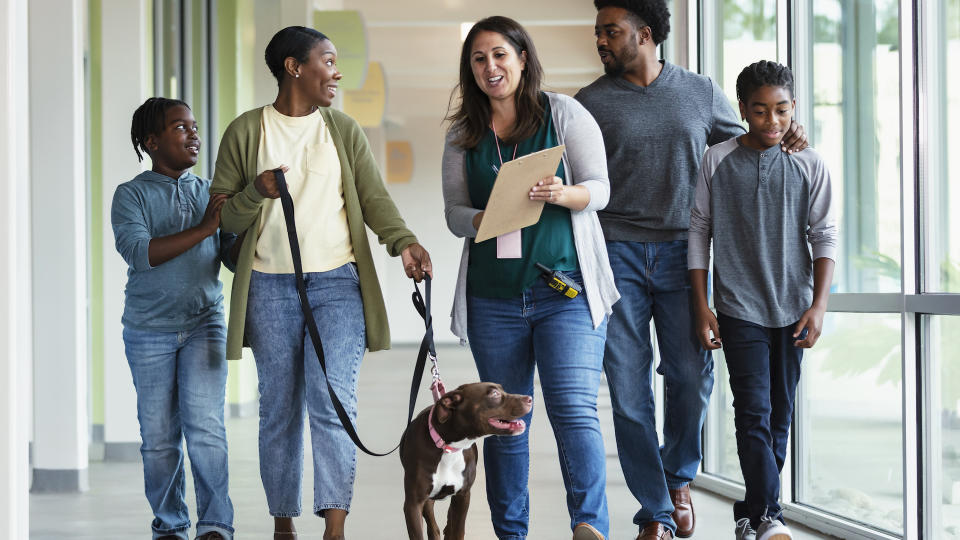
Rescue centers typically offer lifelong support and advice to adopters. The center will tell you all about the dog, as it is in their best interest that the new relationship works out. Sometimes they will give you a bespoke training plan, and rescue charities such as the Dogs Trust in the UK and the United States will include Dog School classes in their rehoming fee.
6. Pre-trained – to varying degrees
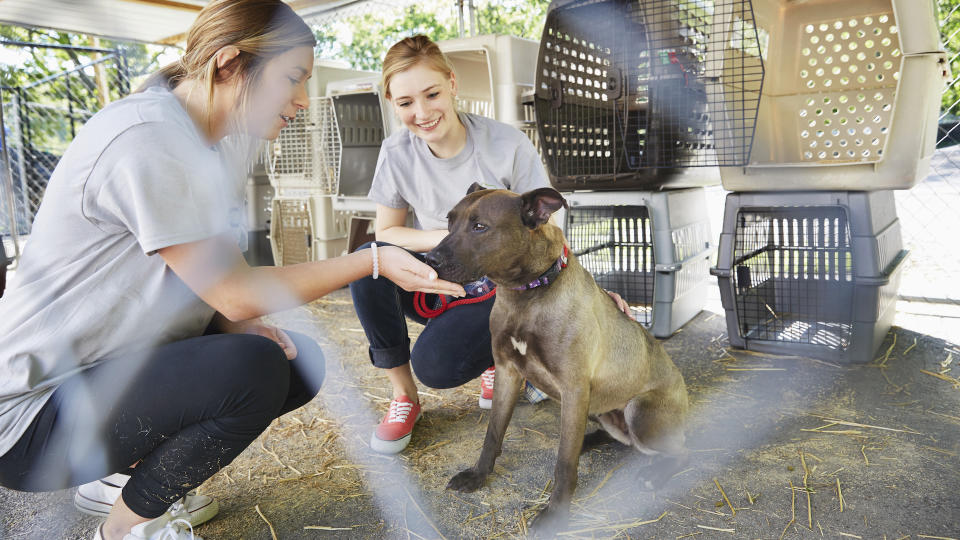
There is a huge variation in how much a rescue dog will have been trained. Many will be in rescue centers because, for whatever reason, they have not been trained at all. Others may have been very well-trained, but circumstances have conspired so that they have ended up needing a new owner. Many adult dogs will be house-trained, have some socialization, and have basic commands.
Contrast this with a new puppy, who is likely to be completely untrained, although you could start with some quick and easy tricks to teach your dog. You will need to spend the first few months mopping up pee stains and messes while you try to figure out how to potty train a puppy, and cope with the dreaded teething phase.
7. Already neutered
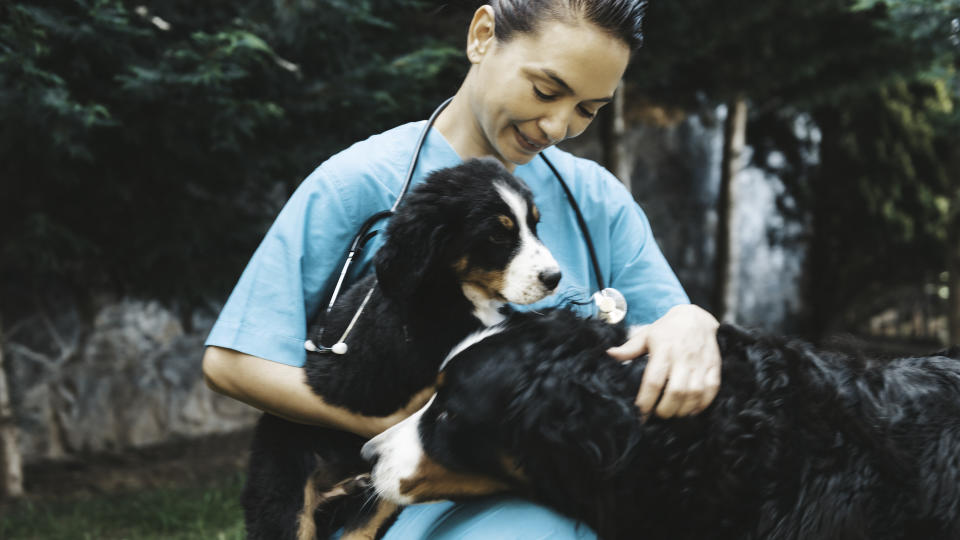
Dogs are usually neutered or spayed before leaving the rescue center to prevent indiscriminate breeding, which saves you a vet fee for the surgery and the stress of supporting a new dog’s recovery. Adopters of dogs that are not neutered (for example, if they are too young) are typically given a neutering voucher and a line in the contract where you agree to neuter at the appropriate time.
8. Immediate companionship
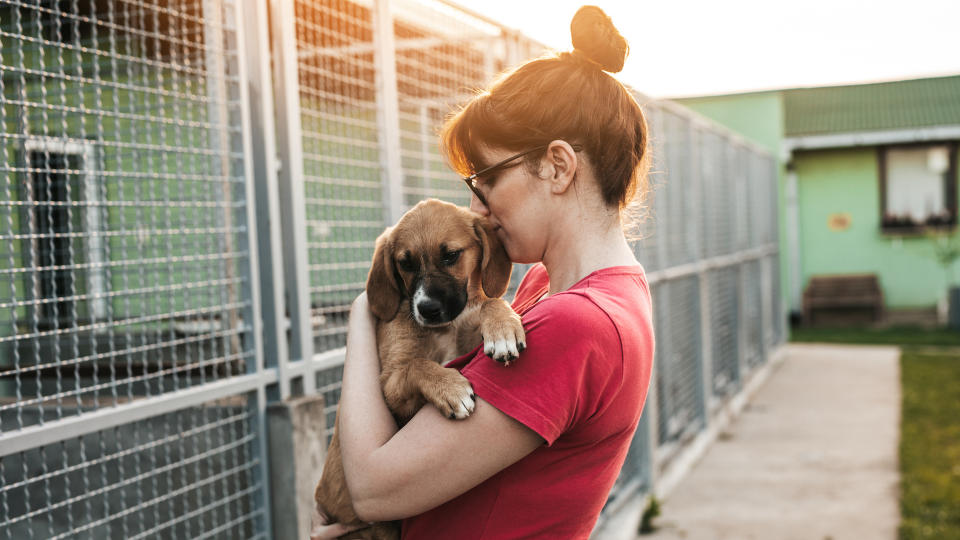
When you start the process of buying a puppy, it can feel like a long time between visiting the litter, picking your favorite puppy, and the bundle of fluff arriving home. With a rescue dog, they’re ready and waiting for their forever home, so as soon as an ideal match is found, you can immediately start building your new relationship. And a dog that has been waiting for their soulmate will be craving your companionship.
9. Lower cost

Since Covid, puppy prices have risen astronomically. The price for adopting a dog is roughly 10% of the cost of a pedigree puppy, of course depending on breed and bloodlines. Most rescue centers charge a donation fee of around $250.
Rescue centers often also provide some sort of useful free kit, such as a collar and leash, a few weeks of free pet insurance, a handbook, and a few days of their current food so you can switch them gradually to one of the best dog food options.
10. Adult dogs need homes too

Cute as puppies undeniably are, adult dogs equally deserve a loving home. Puppies are more popular and tend to find homes easily, but by adopting an older animal you are providing an unwanted, unloved dog with a forever home where he will be cherished and adored. How can you deny them that?
11. Support local shelters
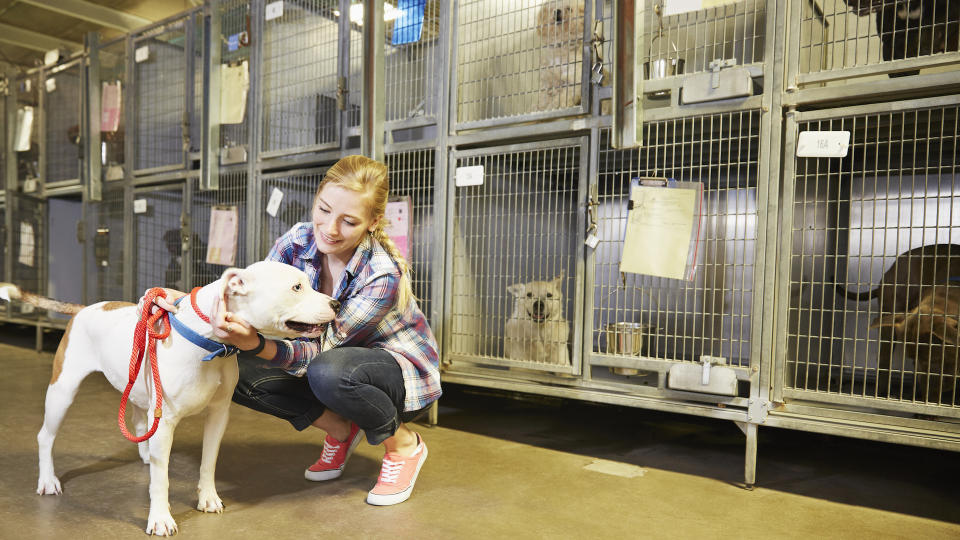
Adoption centers do vital work in keeping stray dogs off the streets, providing safe shelter for abused dogs, and finding new homes for those who are ready for adoption. By adopting, your donation will serve to improve the lives of those that pass through your local center.
12. Helping strays

Stray dogs are a concern across the world, and in some countries the problem is massive. While canine welfare is a major aspect, strays have implications for public health and safety as well as wildlife conservation and protecting the environment.
Besides the health and welfare problems they suffer, stray dogs spread disease, as they are usually unvaccinated; they can cause public health problems either by biting or causing a road accident; and due to not being neutered, they will exacerbate the issues by indiscriminate breeding.
13. Join a community of adopters
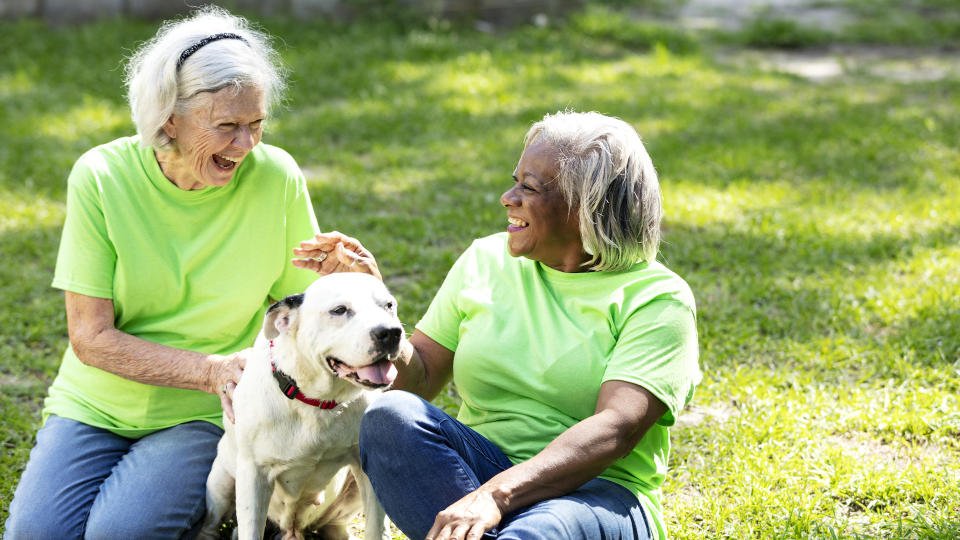
Rescue centers often work hard to build a sense of family between adopters, so that once you have taken on a dog, you are part of their community. Some charities, such as the Dogs Trust, send their pets to their new home with a colored collar, so you can recognize fellow adopted dogs in the park.
Charities also build social media networks and welcome updates on their dogs thriving in new homes and sharing those upbeat bulletins with other members – as well as being able to ask questions and seek support.
14. Unique mixes
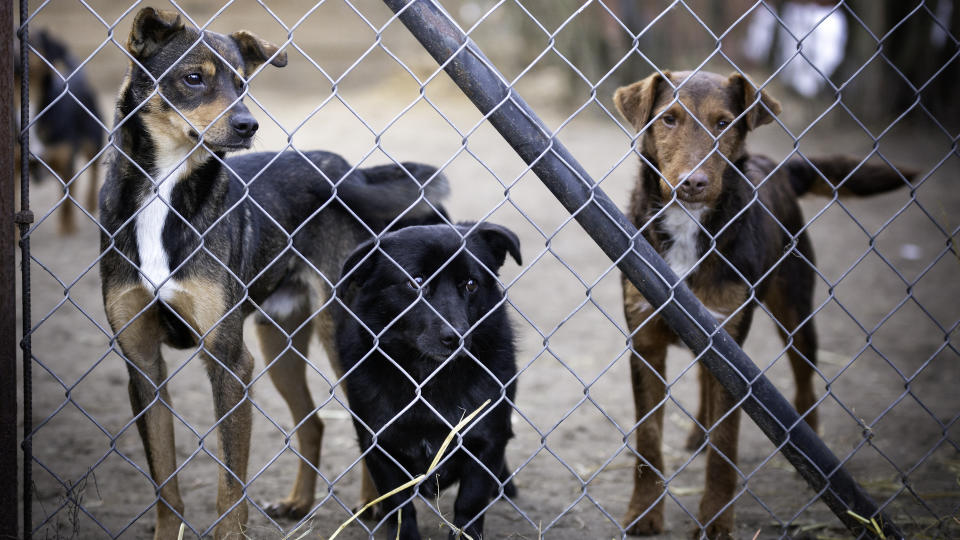
While pedigree breeds are wonderful, and you know what you are getting, many dog owners have found their most precious canine friend to be a mixed breed, a “Heinz 57” dog with unknown ancestry. Some mixed breeds such as Cockapoo and Labradoodle are intentional, but those that end up in rescue centers are often due to an accidental, never-to-be-repeated mating, so you could get yourself a one-off superstar. Mongrels are typically intelligent dogs; they’re not in-bred and so often they are healthy and long-lived. And you might know what you’re getting at the time, but you can identify any breed with a DNA test.
15. Good for all age groups
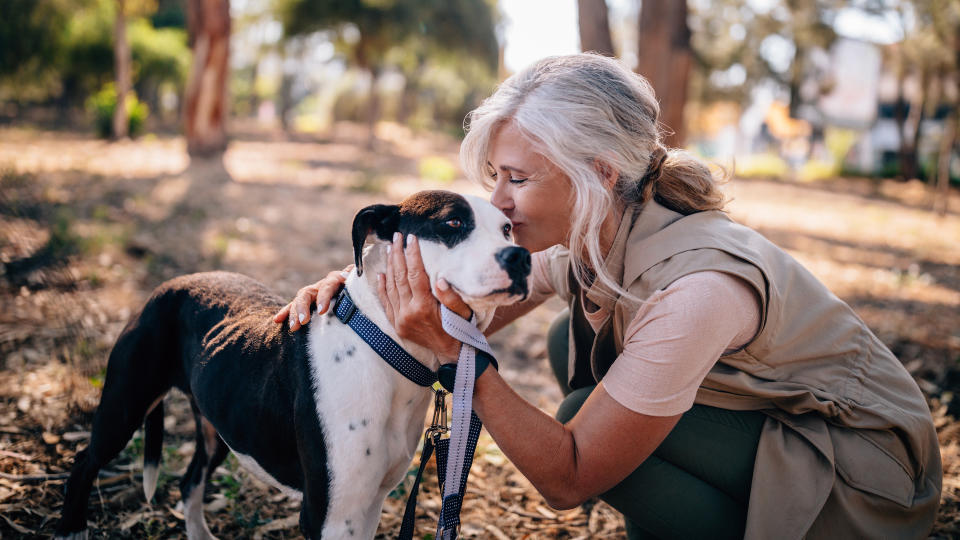
Whether you’re young or old, there’s a rescue dog for every age group, ready to provide companionship and love. Rescue centers are skilled in finding the perfect match for each dog, so one might relish a young and lively family, while another might be one of the best dogs for introverts.
16. Crisis response
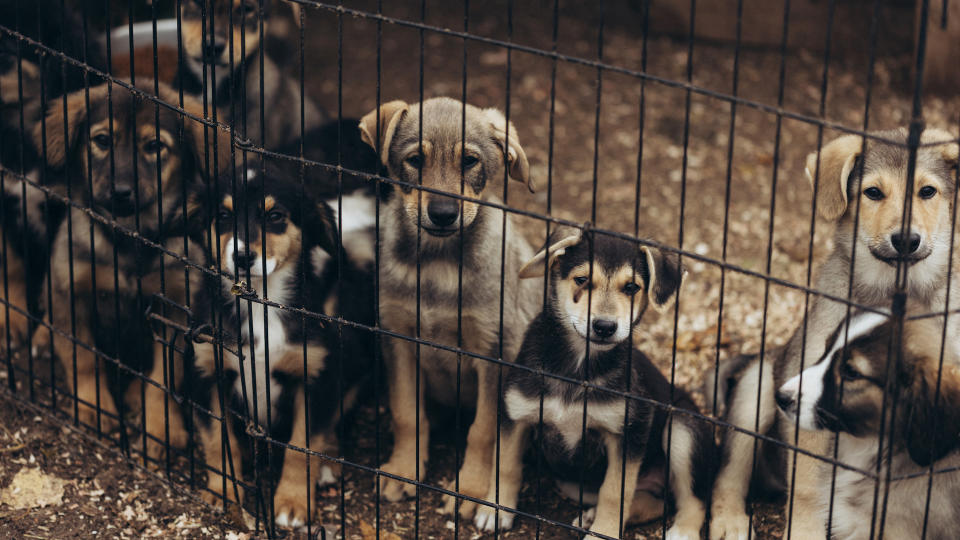
At certain moments, rescue centers can become very overcrowded, such as during financial crises, or after natural disasters. Adopting a rescue dog can help with the crisis response, by providing a home to free up space for other needy dogs.
17. Encourage responsible pet ownership
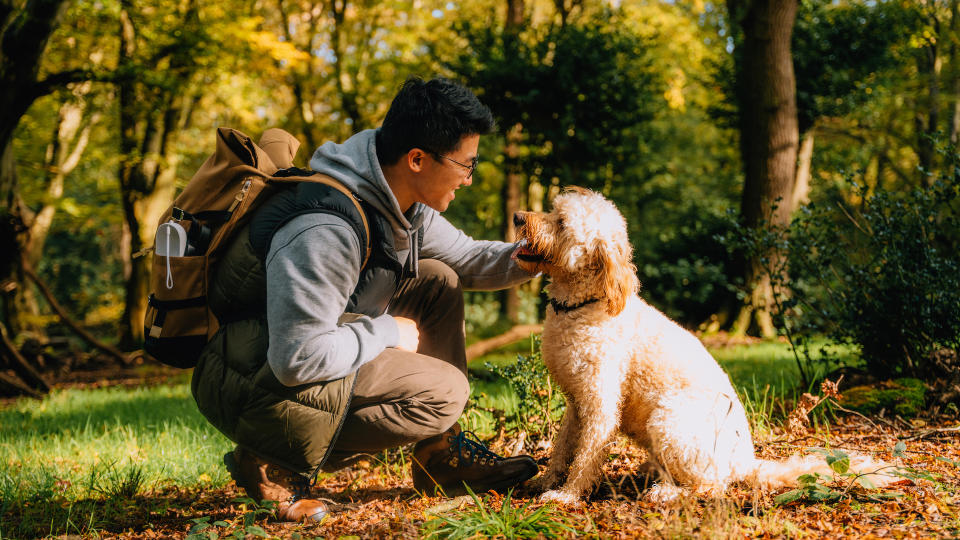
Maybe it’s all the rage to get a new puppy among your friends and colleagues, but by adopting an unwanted dog, you set an example for just one way to be a responsible dog owner, showing that every dog has worth, and may encourage others to do the same.
18. Bond building
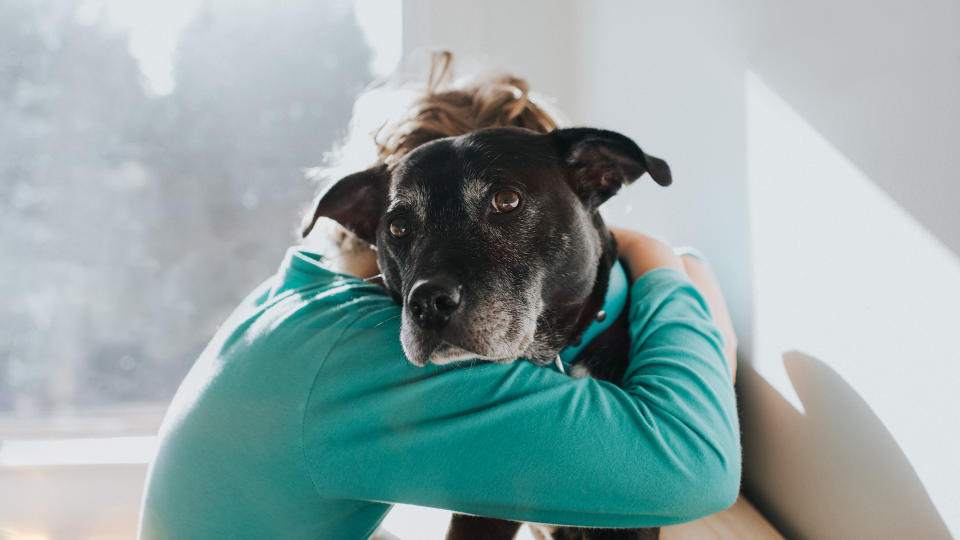
Dogs are known as loyal, faithful companions, and those adopted from charities often form particularly strong bonds with their adopters, as if they appreciate the second chance they’ve been given. Once you have built the trust and they understand that you have their best interests at heart and a forever home, your bond will be unshakable.
19. The rewards of training challenges
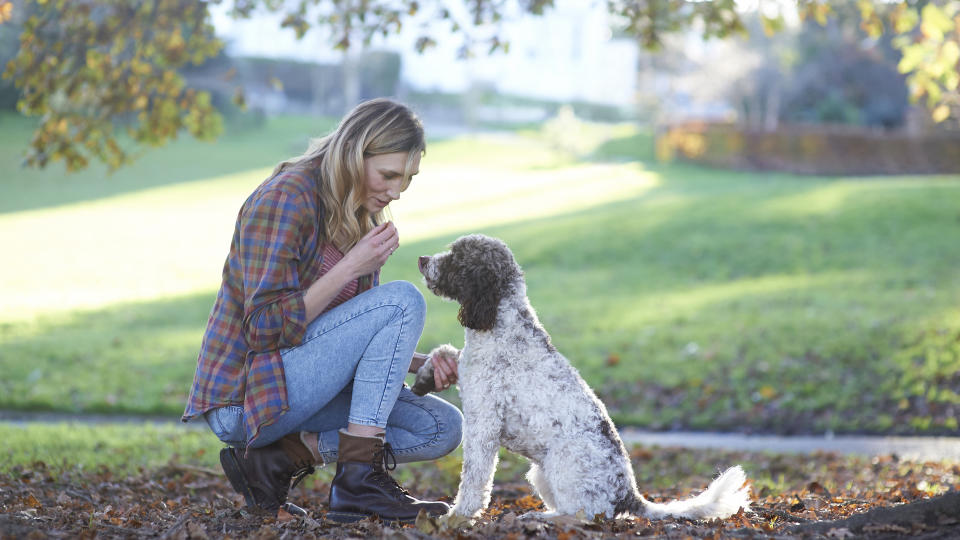
Working through some of the common dog behavioral challenges with a rescue dog can be a profoundly rewarding experience, building a strong bond between you and your new canine companion as he learns to trust you.
20. Enhanced intuition

Rescue dogs have often experienced challenging situations in their backgrounds and have developed a heightened sense of intuition and survival skillset. This can cause them to be super-sensitive to their owner’s emotions and needs, enabling a particularly profound bond.
21. Screened health issues
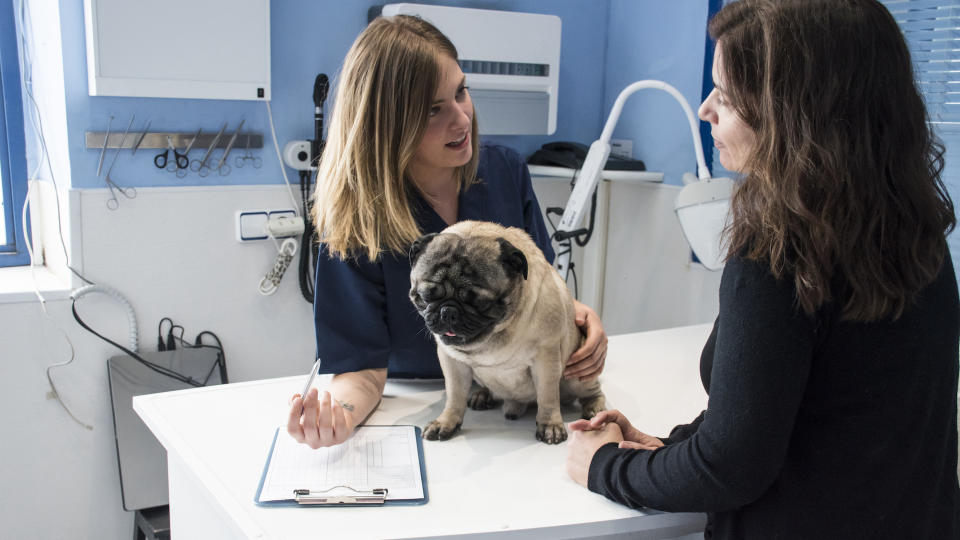
Most shelters will ensure their dogs are thoroughly checked by a vet so that you are fully aware of any existing conditions and can treat them accordingly. Some will even cover the costs of long-term treatment.
They will also be vaccinated and given appropriate worm, flea, and tick preventatives. We also recommend investing in some of the best pet insurance to help offset costs further down the line.
22. Unconditional love
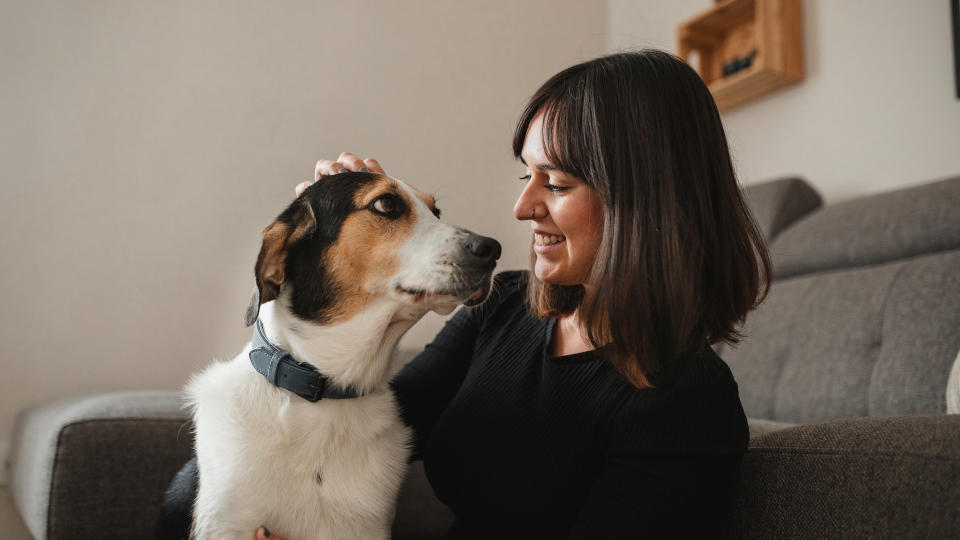
Most dogs can offer unconditional love – it’s the reason they’re known as man’s best friend. However, rescue dogs with a background of being uncherished and unwanted often display a profound sense of gratitude, which can lay the foundations for a particularly special bond with their new owner.
23. Educational opportunity
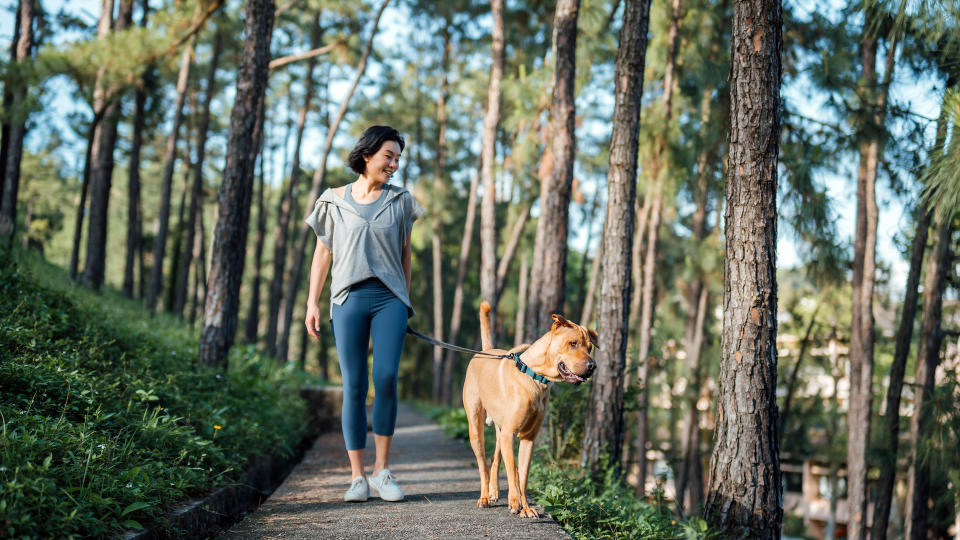
Practice what you preach! If you feel strongly about animal welfare, in adopting a rescue dog, you have the opportunity to educate others about the importance of responsible pet ownership and the joys of adoption.
24. Supporting rehabilitation
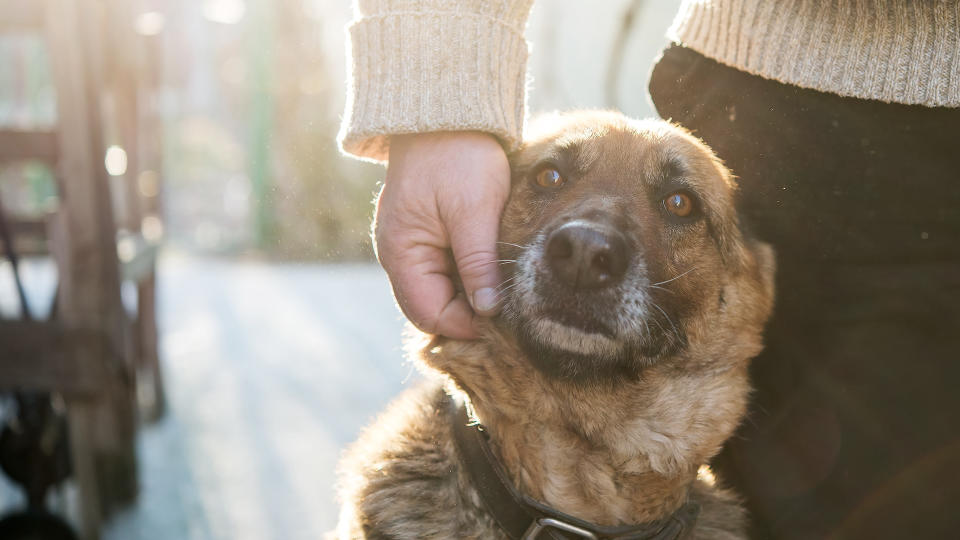
Some rescue dogs are wounded in body and/or soul. Taking on a dog which isn’t the perfect blank canvas that a puppy might appear to be, enables you to provide care, support, and love to a damaged dog that no one wants. The rewards are that you will contribute to their healing process in the long term.
25. Potential heroes
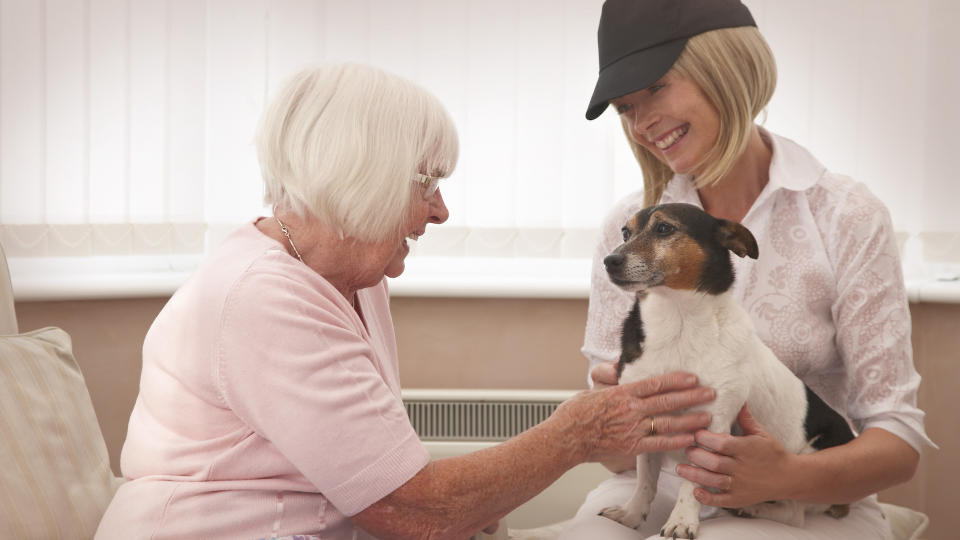
There are plenty of happy endings of dogs who have been adopted and gone on to become therapy or service dogs, or even life-savers in family situations. Their survival skills and developed empathy can give them wonderful attributes in these areas.
26. Customized matches
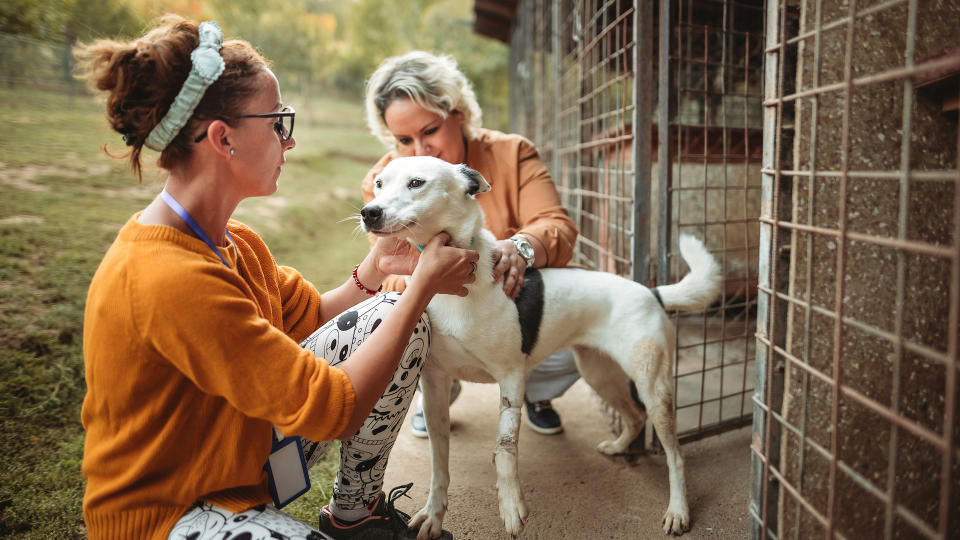
Rescue centers work hard to make an ideal match between a potential adopter and dog. It’s rarely as simple as walking into the center and picking a dog you like the look of. You will usually have to fill in questionnaires, have home-checks and an interview to make sure you are the ideal candidate. This means your new dog should be perfectly suited to your home life, and you to him.
27. Foster failures
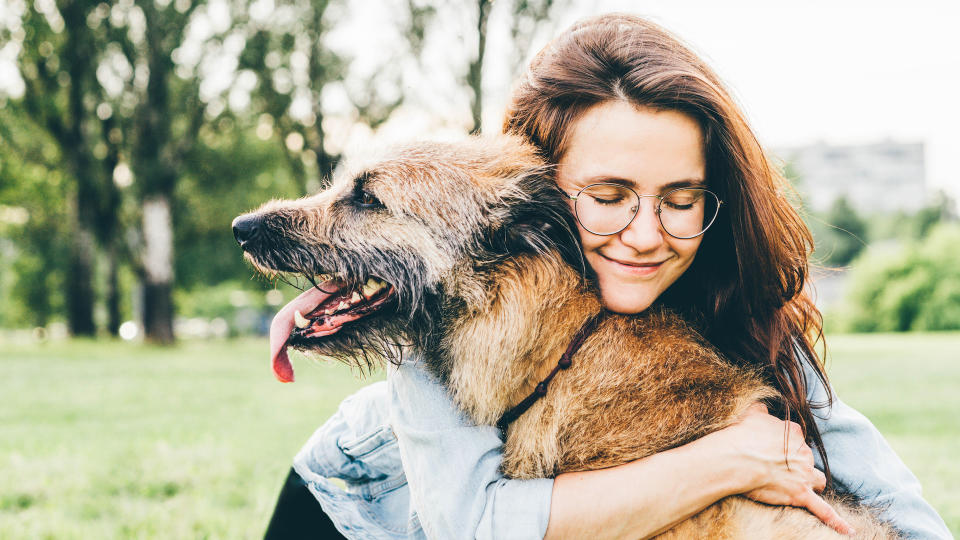
Some rescue organizations offer fostering opportunities, allowing you to care for a dog on a short-term basis while a long-term home is found. If you fall in love with your foster dog, you may be given first choice to adopt them – already knowing your new friend fits right into your home life.
28. Teaching compassion
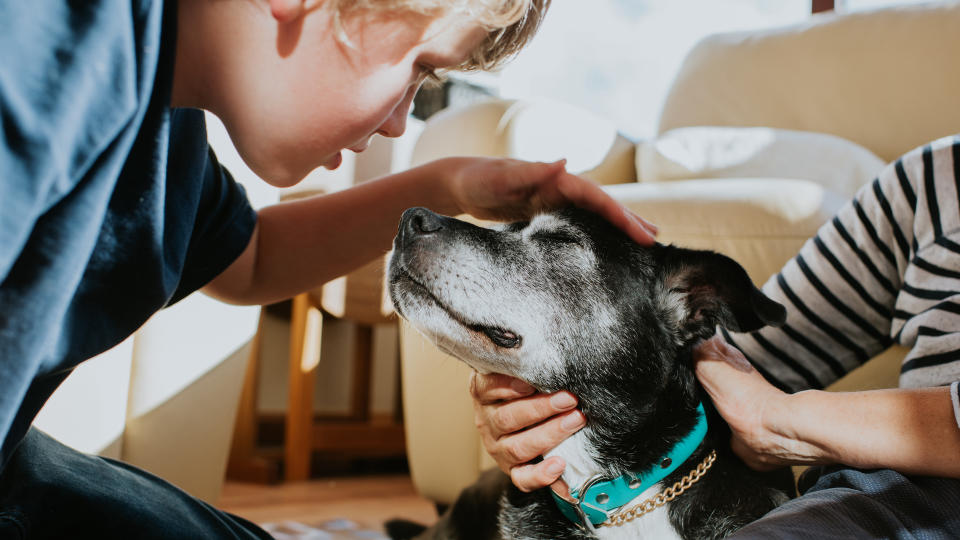
Adopting a rescue dog provides an opportunity to nurture your own compassion and kindness characteristics, as well as modeling them to your kids and friends, demonstrating the value of giving second chances.
29. Inspirational stories

Many rescue dogs come with inspiring stories of resilience and overcoming adversity. By adopting, you become a part of their ongoing story of triumph against the odds.
30. Tail-wagging gratitude

Is there any happier sight than a joyful dog wagging his tail? When you ponder where a rescue dog may have come from, and the happiness you have enabled him to feel, there’s no reward quite like it.
31. Diverse personalities
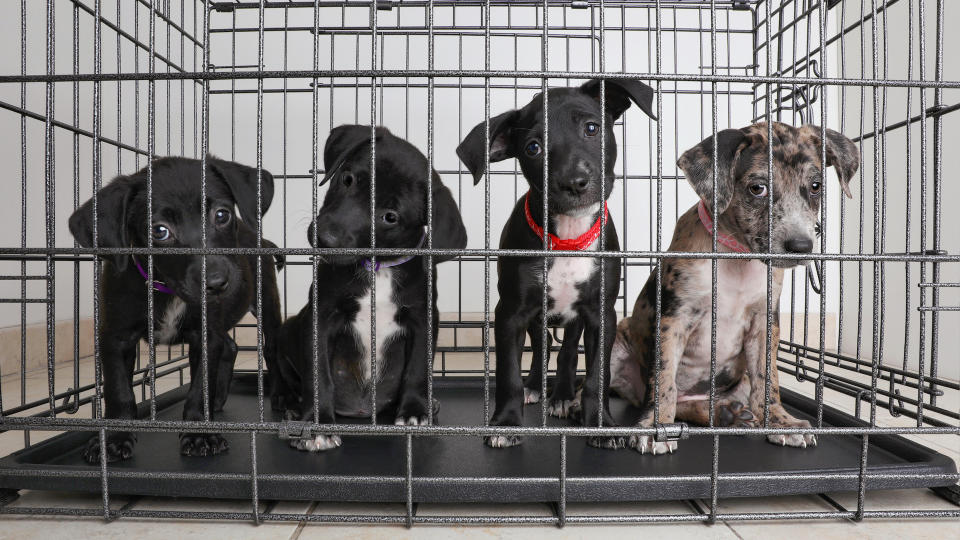
Shelters typically have a diverse mix of dogs with different backgrounds and unique personalities, allowing you to find a canine companion whose traits align perfectly with your own.
32. Lifetime of love
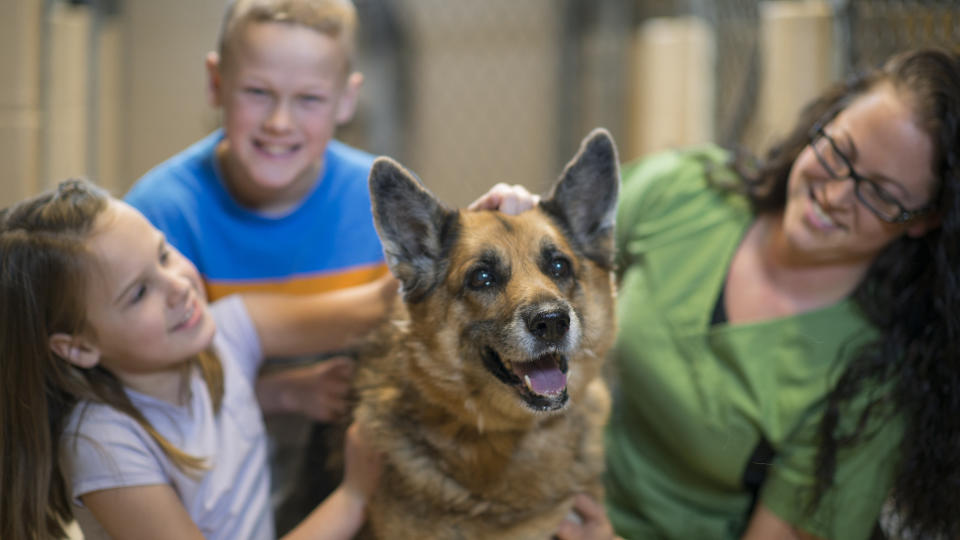
By adopting a rescue dog, you open your heart to a lifetime of love, loyalty, and gratitude from your four-legged friend, as well as creating a ripple effect of positive change in the lives of animals.
